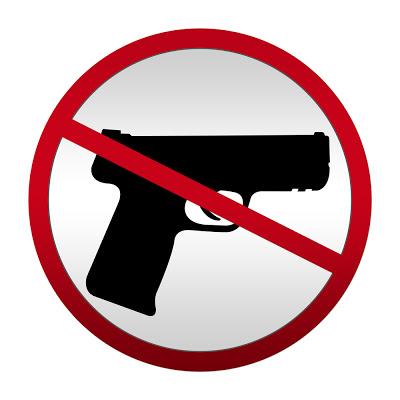 The Maryland Firearms Safety Act went into effect almost one year ago, and at that time most of the news stories were centered on record sales at state gun shops, which resulted in many of the popular handgun models being sold out at local stores. There were also numerous articles about overwhelming demand for the state police to complete background checks. Those who purchased firearms prior to the October 1st, 2013 effective date were not required to submit their fingerprints, but due to the shear number of applications were still forced to wait months for law enforcement clearance. There were a few scattered articles about those in opposition to the strict law, such as the NRA and other Second Amendment lobbyist groups. Each of these groups expressed a strong desire to challenge the law, but at the time it just didn’t seem as if they would have any success. Marylanders were acting as if the strict statewide gun regulations were there to stay, and last summer’s rush to buy firearms proved that. And now we can officially say that the Firearms Safety Act is in fact here to stay, as a federal judge recently upheld it as constitutional in a 47-page opinion.
The Maryland Firearms Safety Act went into effect almost one year ago, and at that time most of the news stories were centered on record sales at state gun shops, which resulted in many of the popular handgun models being sold out at local stores. There were also numerous articles about overwhelming demand for the state police to complete background checks. Those who purchased firearms prior to the October 1st, 2013 effective date were not required to submit their fingerprints, but due to the shear number of applications were still forced to wait months for law enforcement clearance. There were a few scattered articles about those in opposition to the strict law, such as the NRA and other Second Amendment lobbyist groups. Each of these groups expressed a strong desire to challenge the law, but at the time it just didn’t seem as if they would have any success. Marylanders were acting as if the strict statewide gun regulations were there to stay, and last summer’s rush to buy firearms proved that. And now we can officially say that the Firearms Safety Act is in fact here to stay, as a federal judge recently upheld it as constitutional in a 47-page opinion.
Last month in Baltimore, U.S. District Judge Catherine Blake heard argument from the plaintiffs, which were made up of numerous gun rights groups and firearms dealers, and the defendant, which in this case was the state of Maryland. The plaintiffs argued that the state’s regulations went too far in banning numerous popular firearms that have been commonly kept for self-defense. The state countered by urging the court that it had a legitimate interest to protect the public, and each of the gun law’s provisions were specifically designed to achieve that goal. The judge sided with the state, concluding that the defendant had met its burden of demonstrating that the Firearms Safety Act reasonably fit the government’s substantial public safety interest, specifically reducing the number of firearm-related crime.
The Firearms Safety Act brought about numerous restrictions, including the fingerprint requirement and the obligation that all prospective gun purchasers obtain a Handgun Qualification License. It also placed an outright ban on 45 different gun models, and reduced the legal detachable magazine capacity from 20 to 10. These restrictions gained the most notoriety for infringing upon the Second Amendment, and formed the basis of the plaintiff’s lawsuit. But Judge Blake was not moved to declare any of these restrictions unconstitutional, as she pointed out that legal ownership of the 45 banned guns is extremely rare, yet their use in mass shooting and law enforcement murders in disproportionately high compared to other types of guns. The judge also maintained that the plaintiffs were unable to show one single documented instance where an assault weapon with a magazine capacity of more than 10 rounds was useful for self-defense in Maryland.
The strict law may have another day in court down the road, perhaps even in the Supreme Court. But at this point, it is doubtful that any major provisions of the act will be declared unconstitutional. Our state’s gun laws will continue to be some of the toughest in the country, much tougher than nearby states like Virginia, North Carolina, and South Carolina. Benjamin Herbst is a Maryland gun crimes attorney who handles all firearm offenses in the state. He has defended numerous out of state clients who have been arrested for charges including transporting a handgun, possession of firearms or ammunition, and handgun in a vehicle. Contact Benjamin for a free consultation about your case at anytime at 410-207-2598.
Resources
Federal judge upholds strict new Maryland gun laws, washingtontimes.com.
 Criminal Defense Lawyer Blog
Criminal Defense Lawyer Blog

